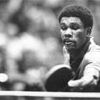 Are you waiting for your circumstances to get better or until you have the best equipment before you will start taking your practice sessions seriously?
Are you waiting for your circumstances to get better or until you have the best equipment before you will start taking your practice sessions seriously?
Don’t get me wrong. I do like all the comforts of life and the best of everything to make me feel as though I can be at the top of my game.
The problem is that comfort is an illusion. It’s not something that will help propel me forward or make me dig my heels in to work harder.
In fact, I find that whenever I am too comfortable, I don’t do anything. Why should I? When things are going well, what is there to fix or change?
My Lazy-Boy Recliner = Less Effort
The problem with comfort is that it tells our unconscious minds not to work so hard. It’s basically a way of telling ourselves “we have arrived,” so putting in less effort is perfectly acceptable.
Wrong.
The best performers in the world don’t allow this to happen to them. They know that once they become complacent, they are done and their career will be too.
Desmond Douglas Used Humble Practice Spaces
If you look at the career of the great table tennis champion, Desmond Douglas, you may spot some small, overlooked things that really made him who he is today.
Douglas’ earliest education in table tennis was very simple, yet very remarkable.
Raised in a working-class family in Birmingham, England, he struggled at his academic work, but found great joy in his table tennis club at school.
The old tables they practiced on were decrepit and falling apart, but they worked. The rooms they practiced in were very tiny.
There was so little space behind the tables that everyone had to stand right up against the edge of the table in order to play while their backs were nearly touching the blackboards.
The claustrophobic practice rooms forced everyone to play a form of “speed table tennis” where everyone had to remain mentally sharp.
This resulted in speed being the main focus, not spin or strategy. Douglas practiced like this for the first 5 years of his early development.
Dedication to 1 Tightly Focused Area
He spent all of his time playing table tennis while everyone else enjoyed other hobbies and interests.
One of his former classmates said of Douglas, “I have never seen anyone with such dedication.”
His focus on speed paid off later as he was sometimes called the “lightning man.” The incredible speed he developed baffled opponents and teammates for decades.
The humble practice space allowed Douglas to master table tennis played at maximum pace standing very close to the table.
The years of encoding the characteristics and patterns of playing in this specific way gave him the ability to see where the ball was going before his opponents even had a chance to hit it.
That’s how you become the fastest table tennis player on the planet…
What You Can Learn From Desmond Douglas
1) Only choose simple, humble practice spaces. You don’t need anything too elaborate or a bunch of fancy equipment.
2) Make it small. A little room with few things in it will keep you focused on achieving deep practice.
3) Don’t choose luxury. Pick something minimal and very basic.
4) Get rid of as many distractions as possible. This includes too much technology and unnecessary stuff.
Keeping things simple and almost Neanderthal-like will give you the freedom to keep repeating, struggling, reaching, and growing.
In other words, it will help you master the destructive forces of complacency. Keep your eyes on the prize and focus working on only 1 specific thing at time.
That’s how you become the best music reader and musician on the planet…but hey, that’s up to you.
